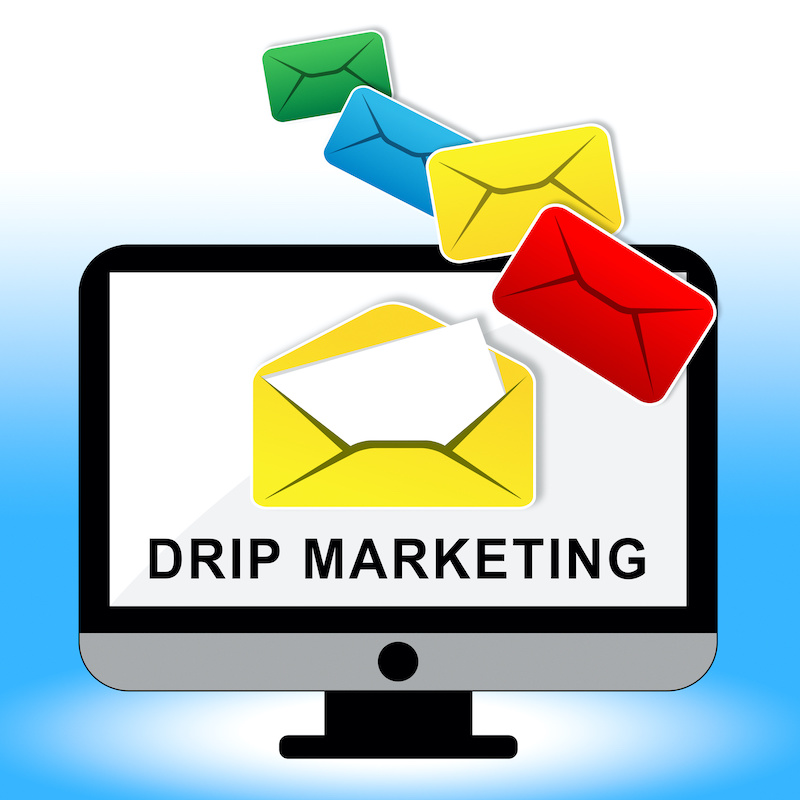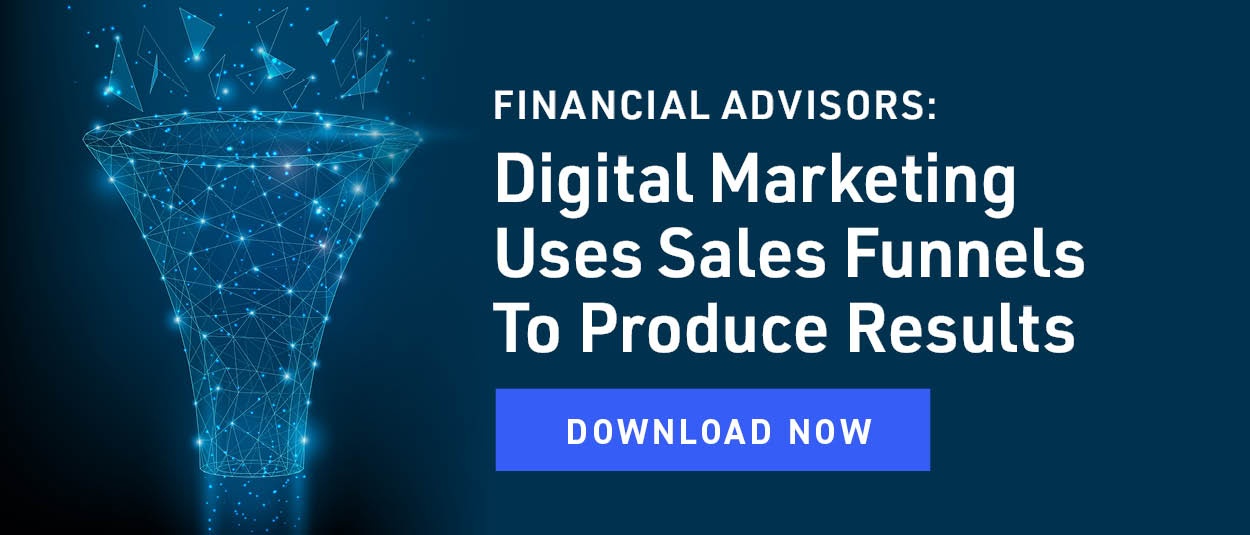

Financial Advisor Email Marketing That Nurtures Relationships With Qualified Leads
Every financial advisor has a list of leads that represents potential prospects and clients for their services. These names end up on their drip email lists because they are not ready to schedule interviews and select financial advisors.
Keep in mind, there can be other types of lists that do not fit the above description. For example, an advisor has developed a list of Centers of Influence, who receive regular communications from the advisor.
This article provides several tips that can impact the productivity of email marketing for financial advisors.
Four Types of Leads
Step one is to recognize there are several types of leads that have different needs and priorities.
The best drip email lead is the investor who plans on hiring a financial advisor in the next six months, but is not ready to schedule an interview. This is a pure timing issue. The purpose of a financial advisor drip email strategy is to keep the advisor’s name in front of the investor until that person is ready to schedule an interview (virtual or traditional).
A second type of lead is the investor who is seeking financial information and that’s it. They will use the information to make near term decisions because they are millennials who are just getting started planning their futures and accumulating assets.
A third type of lead is the investor who is preparing for an event, for example the investor who is going to retire in 18 months. These investors are accumulating knowledge that will help them make the right decisions in the future.
Then there are the DIYs (Do It Yourselfers). They are seeking information that helps them act as their own financial advisors. Even the DIYs are potential prospects for financial advisor services if they can be convinced they will be better off outsourcing the work to professionals.
Relevance Matters
Investors can be seeking various types of information based on their current and future circumstances.
For example, there is the investor who is retiring and rolling assets from a company 401k plan to an IRA. This investor is seeking financial information about rollovers.
Then there is the investor who inherits a pile of money and has never worked with a financial advisor in the past. This investor wants to learn more about financial advisors. In particular, how to determine the quality of financial advisors and who they should trust with their inherited wealth.
The more advisors know about the investors on their drip lists, the better prepared they are to send them relevant information for their current circumstances and needs. Relevance is what really matters.
Building Relationships by Adding Value
The focus of an email drip campaign should be to address investors’ need for information about financial issues and firms. I say firms because the ultimate goal is to convince investors to schedule interviews with the firms that are providing the value-added information.
The principal tactic for a drip email marketing campaign is to establish advisors as financial experts that can be trusted by investors. Consequently, the more value that is produced by drip emails the higher the probability investors will take the initiative and contact advisors when they are ready to conduct interviews.
Conversely, financial advisors should not be too promotional in their emails. The risk is they look more like sales people and less like experts who help investors achieve their financial goals. This can lead to a high percentage of unsubscribes.
The Specialists
There is an investor bias that can influence the development of a drip email strategy. That is, a high percentage of investors want to hire advisors who are experienced working with investors like themselves. This bias creates competitive advantage for specialists.
This preference is based on the assumption that specialists will do a better job than generalists. For example, an advisor who specializes in working with pre-retirees will provide better advice to a pre-retiree than an advisor who does not specialize in that niche.
This preference for specialists is very visible in the medical and legal communities. People do not go to a general practitioner for brain surgery. Or, they don’t go to real estate attorneys for wills and trust documents.
Interpret Current Events
The primary opportunity for drip email is to establish financial advisors as sources of financial knowledge that benefits investors. The more value that is created by the advisors the higher the probability investors will perceive them as sources they can trust
Drip emails are the way financial advisors deliver this information to the investors on their lists. And, the more timely and relevant the content in the drip emails the better.
This means a financial advisor’s interpretation of current events can be invaluable. And, since these events are happening on a daily basis, there is never a shortage of topics that advisors can write about.
However, financial advisors are not just reporting on a topic or event. Advisors can provide their interpretations of the topics or events and how they can impact the investors on the advisors’ drip lists.
Current examples include how a $30 trillion national debt will impact investors. Or, what is the best way to protect the market value of assets during periods of high inflation? Or, is the stock market in a bubble with substantial downside risk? If yes, how do investors avoid that risk?
There is a fine line here. Financial advisors are describing how current events may impact investors without providing a strategy for those events.
Building Relationships Based on Trust
Establishing advisors as financial experts should be the goal of every drip email strategy. But, even more important, could be building trust so investors learn to rely on advisors for financial information.
Consider these two extremes. One financial advisor uses drip email to push their investment services. Every email tries to convince investors to select them or at least contact them. Another advisor uses drip emails to build credibility and trust by addressing the financial pain points of investors and providing solutions.
Which advisor is building the level of trust that is necessary to convince investors to respond and schedule interviews?
The Survey Strategy
Periodic surveys can be a great strategy for gathering information from names on financial advisor drip lists. Keep in mind this tactic is being used for names on drip lists that are already receiving some level of communication from financial advisors.
Make sure the investors know their responses will not be shared with any third parties and their responses will be aggregated with other investors. It is important that they feel safe about the privacy of their responses.
Another tactic is to share the results of the survey with the participants. So the more relevance the survey has to their situations, the higher the probability they will participate because the responses benefit them.
Conclusion
Drip email strategies are an important part of any financial advisor’s nurturing system for leads who are not ready to schedule interviews.

Jack Waymire, BA, MBA
Search Here
Categories
- AI (18)
- blogging (2)
- branding (1)
- content (12)
- custodians (1)
- Digital (537)
- email marketing (3)
- fcmo (3)
- fees (1)
- financial advisor marketing (68)
- Google (3)
- Ideas & Tips (125)
- Investor Experience (7)
- lead generation (7)
- linkedin (1)
- Marketing (607)
- newsletters (1)
- Online Transparency (2)
- podcasting (1)
- search engine optimization (4)
- seo (9)
- Social Media (2)
- video (3)
- Websites (172)
- YouTube channel (2)
Recent Posts
-
 November 20, 2025
November 20, 2025 -

Trust Is The Biggest Online Marketing Challenge For Financial Advisors
November 17, 2025 -

Compliant Financial Advisor Bios Using AI Website Builders
October 22, 2025 -

-

Top 10 Business Challenges for Smaller Financial Advisor Firms
October 16, 2025

